One-Punch Man’s Saitama: The Alienation of a Hero
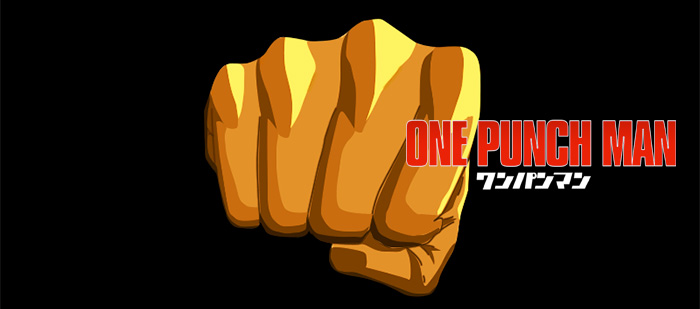
The popular manga and anime series One-Punch Man follows the adventures of Saitama, an average young man who trained himself to become so powerful that he can defeat any opponent with a single punch. While this incredible strength makes Saitama an effective superhero, it also leads to his profound alienation from society. Saitama’s extreme power isolates him from other heroes and civilians.
When battling villains, Saitama dispatches enemies casually with one blow while other heroes struggle against them. This difference highlights how Saitama exists on a completely different level. His power dwarfs even the strongest heroes, like Genos or Bang. As a result, Saitama cannot relate to the difficult trials and gradual self-improvement that other heroes experience in their fight against evil. Saitama’s unbelievable strength means no fight provides stimulation or joy for him anymore. He tackles monumental villains and cosmic threats with the same apathy as buying groceries.
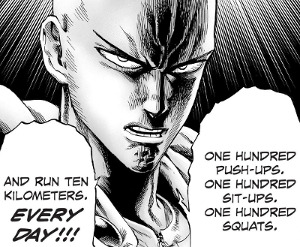
Saitama cannot recapture his passion, excitement, and sense of purpose when first becoming a hero. Now even the mightiest enemy poses no challenge. This boredom and detachment from his hero work further distances Saitama from others. Saitama’s extreme power isolates him emotionally. His strength makes it impossible to experience struggle, fear, or defeat. As a result, Saitama struggles to form meaningful connections. For instance, he remains oblivious to Genos’ reverence towards him as a teacher. Saitama cannot comprehend what drives others to become heroes or the life-or-death stakes they face. This gap in experience prevents Saitama from bonding with people, leaving him perpetually alone.
The clash between Saitama and the invading alien Boros starkly elucidates the depths of Saitama’s isolation. For Boros, their fight represents a historic chance to unleash his strength against a worthy adversary. In contrast, Saitama remains listless and bored, even as Boros overwhelms him with attacks. When Boros unleashes the ‘Collapsing Star Roaring Cannon’ – a strike powerful enough to destroy a planet – Saitama simply yawns before countering it with a ‘Serious Punch’. This casual display of limitless power utterly crushes Boros’ spirit along with his body. Saitama single-handedly defeats Boros’ ultimate technique without the slightest effort.
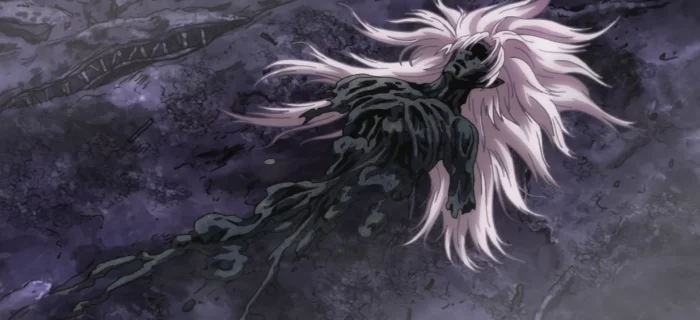
Their climactic battle illustrates the true tragedy of Saitama’s strength, dooming him to total disconnection from any chance of meaningful combat. Saitama will never again know the thrill of being challenged, the stakes of struggling, or a hard-won victory. Against Boros’ zeal, Saitama’s profound apathy starkly symbolizes his alienation. For all his power, Saitama remains utterly unable to recapture the passion that initially fueled his journey to become a hero.
His overpowering strength has permanently severed him from identifying with fellow heroes or villains who still feel human limitations. Saitama has become a solo actor in a play where only he has memorized all the lines in advance. He trudges on stage out of hollow obligation rather than drive or purpose. The Boros fight offers but one glimpse into Saitama’s psyche – an immortal god trapped in the performance of humanity.
Alienation and Saitama
Alienation is a multifaceted socio-psychological phenomenon extensively discussed in academic literature. At its core, alienation refers to a subjective experience of separation from some aspect of one’s intrinsic self or external social reality. Early examinations of alienation originate from existential philosophy. Without objective meaning imposed from external sources like religion or tradition, individuals confronted absurdity and nothingness in charting their own purpose and values (Heidegger, 1962). In social theory, Marx (1987) offered an analytic framework conceptualizing alienation under capitalism. He asserted that when labourers are divorced from ownership over the means and results of production, they become estranged from their creative capacities and fellow humans. Subsequent Marxist scholars extended these ideas, illuminating how capitalist social relations can fragment individuals’ self-identification with their work roles, community involvement, and political participation. Contemporary research continues exploring alienation’s diverse indicators and ramifications.
Saitama’s extreme strength leads to a profound alienation from society that echoes sociological concepts of alienation. Saitama’s isolation aligns with Marx’s idea of alienation from productive activity. As a hero, Saitama no longer finds meaning or purpose in the “work” of fighting villains because it has become effortless for him. He tackles enemies with the same mundane routine as any office job.
Saitama has become alienated from the validation and fulfilment his hero work once provided him. Similarly, Saitama’s disconnection from other heroes parallels Marx’s concept of alienation from the species-being. His power isolates him from the collective purpose and identity heroes share. Saitama cannot relate to the struggles of binding heroes together or finding companionship through shared experiences. His species-being as a hero remains out of reach.
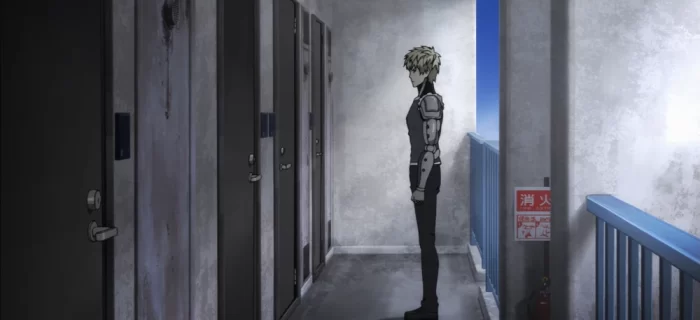
After Saitama rapidly ascends the hero rankings due to his feats, he remains wholly unaware of the competitive resentment his advancement fosters amongst peers. When A-Class heroes like Golden Ball bitterly remark on Saitama unfairly surpassing them despite being a novice, he does not comprehend their grievances. Saitama remains detached from the politics and social ladder-climbing motivating other heroes. Having become the most powerful hero already, he has no conception of professional rivalry or vying for status. His indifference to the reactions of Golden Ball and others underscores Saitama’s profound dissociation from normal social dynamics. Where other heroes still grasp for advancement and renown, Saitama is completely isolated from such human desires. Having lost a sense of challenge long ago due to his strength, Saitama is unaffected by competition or public glory. Scenes like this highlight how his singular status severs his connections to others. He exists on a separate plane, untouched by interpersonal friction or achievement-seeking that drive most heroes and human beings.
Saitama “is” Powerless
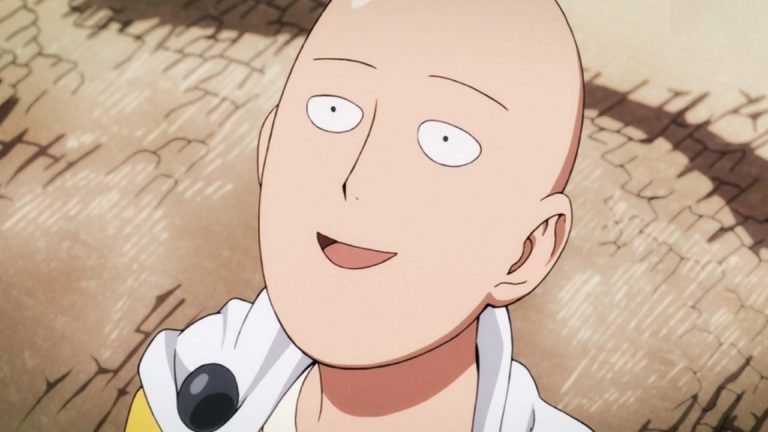
While Saitama possesses unmatched physical strength, his capabilities have ironically stripped him of power over several aspects of his life.
First, his power creates powerlessness in forming meaningful relationships with others, especially fellow heroes. His peerless abilities isolate him, making it impossible for Saitama to bond through shared struggle and purpose. When Genos passionately pledges to become Saitama’s loyal disciple after witnessing his power, Saitama remains utterly confused by Genos’ devotion. He does not grasp why this talented young hero wishes to study under him, even forgetting Genos’ name at first. This comedic exchange highlights Saitama’s detachment from meaningful human bonds. Where Genos is moved by aspiration and admiration, Saitama cannot comprehend such profound emotions. Having become preternaturally strong long ago, Saitama lost touch with the passions that drive others to improve themselves and form connections. His apathetic reaction to Genos’ heartfelt devotion reveals Saitama’s permanent dissociation from relatability. Though Genos sees a mentor in Saitama, Saitama fails to reciprocate even superficially. This interaction powerfully demonstrates Saitama’s isolation – his sheer strength has barred him from partaking in fundamental human experiences like aspiration, improvement, friendship, and belonging. He is doomed to disappoint others perpetually, seeking meaning he cannot provide, frozen in permanent disconnect.
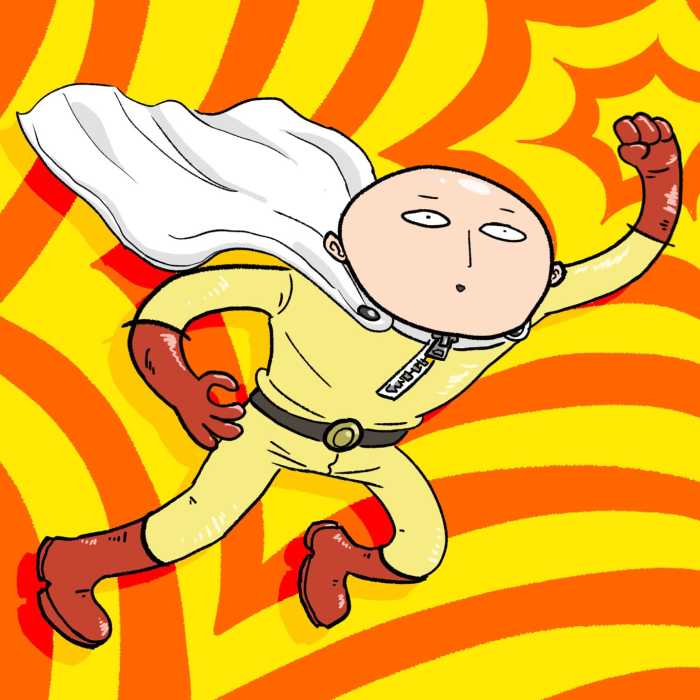
Second, Saitama’s power renders him powerless against boredom. With no enemies posing a challenge, he finds no fulfilment or stimulation from combat. Saitama has lost power over experiencing passion and excitement.
When faced with the formidable ninja villain Sonic, Saitama remains utterly unimpressed despite Sonic utilizing his full speed and lethal weapons. Sonic desperately unleashes his barrage of claws, sword strikes, and projectiles in an attempt to gain an advantage over Saitama. Yet Saitama evades the attacks with casual, minimal movements, yawning and picking his ear while chiding Sonic for not fighting seriously. This stark contrast between Sonic’s utmost effort and Saitama’s bored indifference highlights the vast disconnect caused by Saitama’s power. Sonic still experiences real challenges and the possibility of defeat, but Saitama has long forgotten such sensations. Even an intense assault from a deadly foe feels like child’s play to him now. Saitama criticizes Sonic for holding back when, in reality, no enemy can come close to matching Saitama anymore. This scene bears the tragedy of Saitama’s strength, severing him entirely from the thrilling uncertainty that combat still provides others. Faced with Sonic’s passion, Saitama’s apathy only further crystallizes his profound alienation and isolation as a hero.
Most tragically, Saitama’s physical power creates powerlessness over finding meaning and happiness. Though he pursued strength to become a great hero, it has robbed him of the sense of purpose he sought. This demonstrates the ultimate paradox – how the pursuit of power can lead to a profound loss of power. Hence, Saitama’s supreme abilities generate powerlessness that socially isolates him, bores him, disconnects him from others, and strips away the meaning he seeks through becoming powerful. His journey provides a poignant warning about the relationship between agency and strength.
Between Good and Evil
While Saitama’s profound isolation could theoretically position him between good and evil, a closer examination reveals a more complex picture. Although apathetic during fights, Saitama routinely risks his life to stop villains from harming others. This suggests an innate heroism persists despite his detachment.
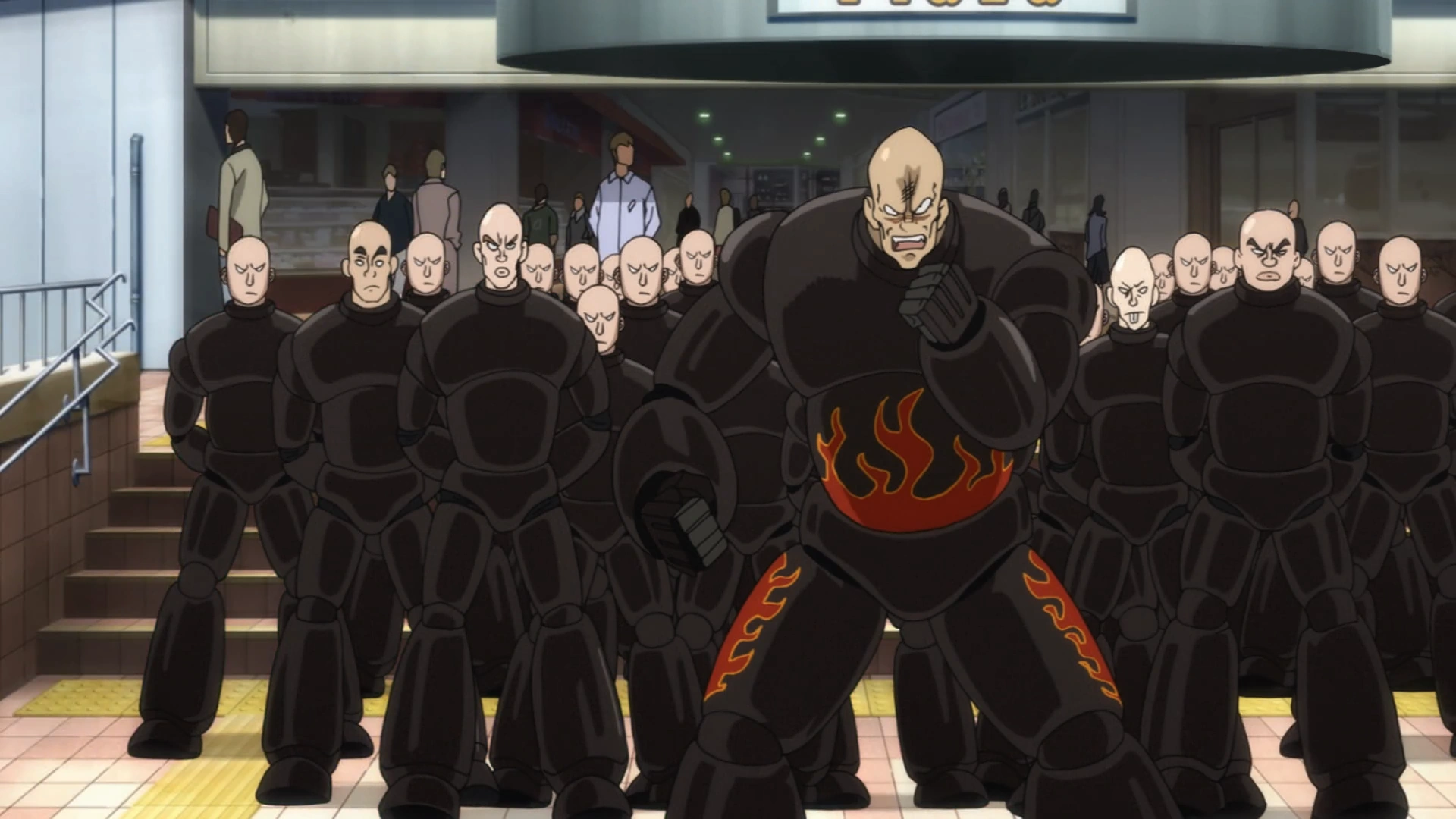
When the Paradiser group tries recruiting Saitama by capitalizing on his detachment from society and lack of recognition, Saitama bluntly refuses to join them. He states that he never became a hero, seeking fame or approval from others. Rather, Saitama chose this path driven by his own sense of morality and purpose. This reveals the crucial truth that despite his profound alienation, Saitama retains an intrinsic set of heroic principles at his core. His isolation has not initially corrupted the fundamental nobility that led him down this path. Saitama’s rebuff of the Paradisers’ appeals proves he does not compromise his morals for validation or connection. Having lost touch with outward social systems, Saitama’s inner moral compass remains intact. This subtle yet powerful scene suggests that underneath his apathetic exterior, Saitama harbours an incorruptible morality immune to the corrosion of alienation. His character represents an existential parable of retaining integrity even when utterly detached on the surface.
Thus, while Saitama’s alienation does dissociate him from traditional systems of justice and create moral ambiguity, glimpses of virtuous qualities suggest less a malevolent heart and more a fundamentally good man struggling to rediscover purpose. His moral alignment may be grey, but he is leaning closer toward light than true darkness.
Despite his profound apathy in battle, Saitama is careful to avoid lethal force when facing human opponents like Sonic and Suiryu. Even when pressed or provoked during these fights, Saitama deliberately holds back to prevent seriously injuring them. This discretion reveals his lingering principles despite his dissociation. Saitama abstains from exploiting his full power against outmatched human rivals, avoiding unnecessary violence. Where other detached heroes may have sacrificed empathy or mercy due to isolation, Saitama retains his moral foundations. His cautious restraint underscores how alienation has not utterly compromised his heroic ideals. Scenes like these offer glimpses of Saitama’s enduring moral compass – a crucial counterpoint to his outward apathy. They suggest that beneath his existential ennui, Saitama has not forfeited his humanity and morals. This paints his character with nuance rather than allowing a simplistic descent into amorality.
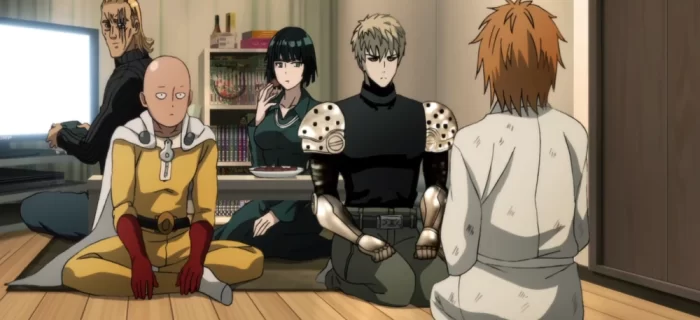
Looking closely, Saitama cannot be categorized simply as good or evil, hero or villain. His profound alienation colours his moral landscape in shades of grey, but those greys contain complexities and even traces of light. Saitama drifts into apathy and boredom during his hero work, but he continues doing the work nonetheless.
Though Saitama finds administrative Hero Association meetings dull and pointless, he diligently participates and completes any assigned paperwork. He upholds these bureaucratic duties reliably despite expressing irritation at pointless formalities. Saitama’s consistency in attending meetings and completing reports he deems mundane highlights his retained professional discipline and work ethic. Even as an alienated hero who has surpassed the need for an organization’s oversight, he adheres to his expected responsibilities. Saitama does not abandon the structures and rules of society despite feeling disconnected from their relevance to him. His diligence with boringHero Association obligations suggests that alienation has not caused Saitama to disregard discipline, order and duty. It reinforces that his profound isolation remains nuanced – aspects of his humanity, like accountability, persist alongside his detachment. Scenes like these provide small but significant glimpses of Saitama’s fundamental integrity enduring within his existential crisis.
In Alienation, We Unite
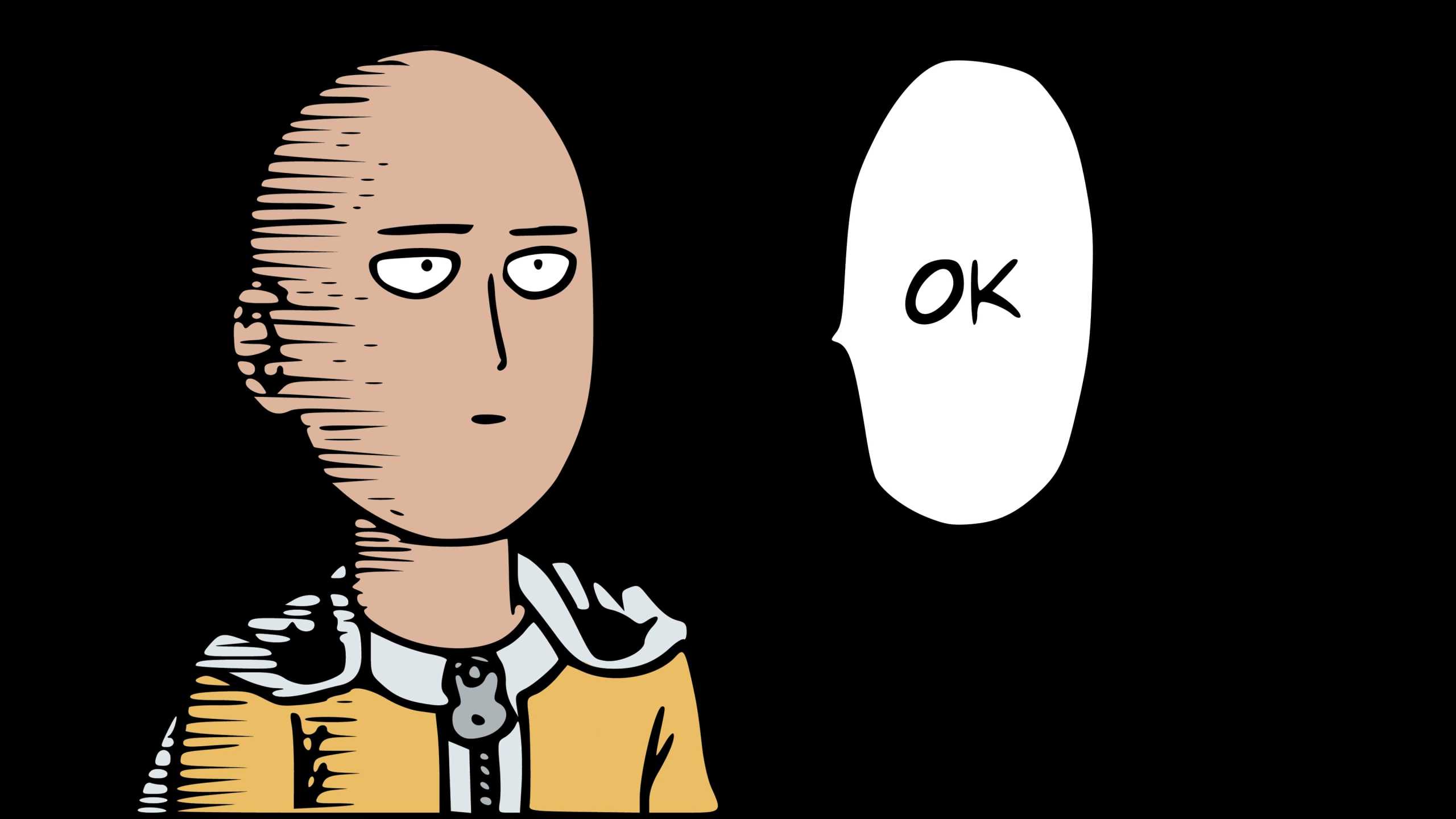
Unlike the mysterious hero Blast, who isolates himself willingly from other heroes and society at large, Saitama’s alienation stems from circumstances outside his control – namely, his own immeasurable power. Blast retreats into seclusion out of personal preference, unwilling to engage with others and content to follow his own agenda. But Saitama desperately seeks connection and purpose. His unmatched strength produces isolation involuntarily by placing him on a level so far beyond his peers. Saitama’s plight directly parallels his capabilities in a way uniquely tragic among isolated heroes. He did not seek to become disconnected from humanity; rather, his profound power severed his ties against his own wishes. Saitama’s alienation is poignantly involuntary, heightening the sense of powerlessness he grapples with, and setting him apart from reclusive heroes like Blast, who isolate by choice.
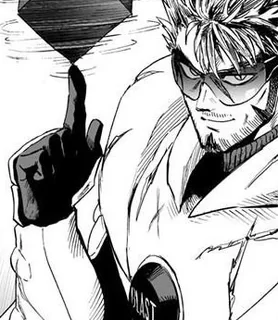
Saitama also stands apart from villains who turn to evil out of isolation, such as Monster Association leader Psykos. Driven by resentment from being bullied and ostracized as a child, Psykos pursues destructive power to exact revenge on society. In contrast, Saitama harbours no ill will towards others from his alienation. Having willingly taken the heroic path prior to gaining power, he clings to human compassion even as isolation overtakes him. Furthermore, where Psykos exerts control over the Monster Association to cement her disrupted sense of belonging, Saitama avoids seeking influence over others.
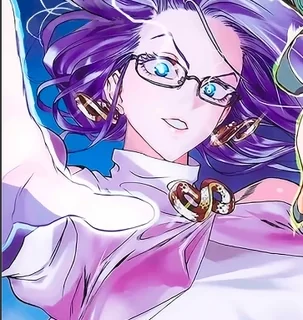
Villains like Psykos endeavour to dominate out of displacement, whereas Saitama’s isolation stems from forces outside his realm of control. Additionally, isolated villains often descend into nihilism and abandon moral codes entirely. But Saitama operates within a spectrum of greys – neither wholly good nor evil despite his detachment. Most critically, Psykos’s isolation fuels her villainy, while Saitama’s isolates him involuntarily from his innate heroism. Their contrasting responses showcase the complex psychology of alienation. Saitama remains in a liminal space between hope and despair, never fully losing his humanity. His profound loneliness emanates not from internal darkness but the burden of power thrust upon him by chance. This further sharpens Saitama’s distinct essence.
Saitama’s profound alienation and internal struggle for meaning and purpose contains undertones of existentialist philosophy. His apathy mirrors the existential dread or “nihilism” caused by a lack of purpose in one’s existence. Saitama embodies the existential search for meaning through the notions of “existence preceding essence,” as his hero status failed to provide the meaning he sought. His malaise represents the existential “sickness unto death” described by Kierkegaard. Saitama even echoes the “absurd hero” who continues to pursue meaning despite life’s meaninglessness.
Connecting his story to these existentialist concepts enriches the analysis. It transforms his personal journey into a metaphor for the universal human plight to create purpose and connect with one’s true self amidst an indifferent universe. His seek for fulfillment becomes elevated from that of just a superhero to a profoundly relatable human condition. Saitama’s profound alienation and disillusionment with the meaningless of his mighty victories deeply reflect the core tenets of existentialist thought. According to existentialism, individuals are defined by their capacity for self-determination and freedom. Yet exercising this freedom inevitably leads one to confront the absurdity and meaninglessness of existence.
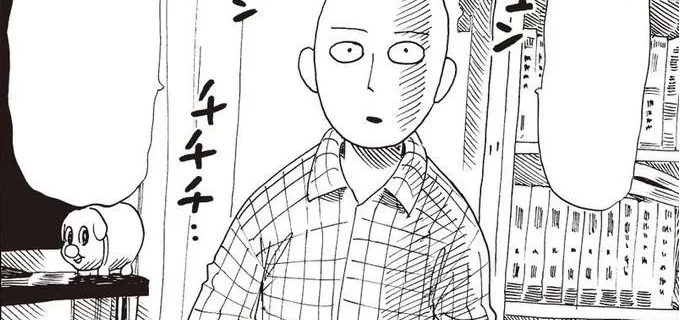
Saitama epitomizes this existential condition. His single-minded pursuit of strength leaves him confronting the hollowness of his achievements. Like Camus’s description of the absurd hero Sisyphus futilely pushing a boulder up a hill for eternity, Saitama defeats any monster but finds the repetition devoid of significance. Furthermore, Saitama embodies the existentialist emphasis on “existence preceding essence.” His role as a superhero fails to provide the meaning and fulfillment he anticipated. This disconnect between Saitama’s actions and internal purpose aligns with the existentialist notion that no external value system can define one’s meaning. Examining Saitama through an existential lens enhances the poignancy of his inner crisis. He represents the universal human struggle to construct personal meaning and purpose within an indifferent, meaningless universe. Saitama’s journey vividly captures the existentialist concepts of absurdity, alienation, freedom, responsibility, and our conflicted search for self-definition. Linking such philosophical depth to his character elevates his dilemma from that of just a superhero story to a metaphor for humanity’s timeless existential plight.
Ultimately, Saitama’s journey in One-Punch Man contains undeniable existentialist undertones in grappling with alienation, purposelessness, and the search for meaning. His unparalleled physical strength results in societal ostracisation and a crisis of self-identity. Yet glimmers of humanity persist in Saitama’s sacrifices for others and restraint against killing. Comparisons with isolated villains and heroes like Blast further illuminate Saitama’s distinct plight and complex moral landscape. Connecting his struggles to existentialist philosophy deepens the poignancy and universality of his inner turmoil.
While fantastical on the surface, Saitama’s story provides insight into the profound human dilemmas of purpose, connection, and morality within an absurd universe. His character represents an amalgam of light and dark, strength and fragility, heroism and pathos. Indeed, Saitama’s greatest adversary is not any villain but his own search to rediscover significance and bonds amidst isolation. His powerlessness ultimately manifests not in body but in spirit. Therein lies the elegant tragedy of One-Punch Man, using superhuman tropes to explore the depths of human nature. Saitama’s journey compels us to reflect on the omnipresent dance between our integral and alienated selves.
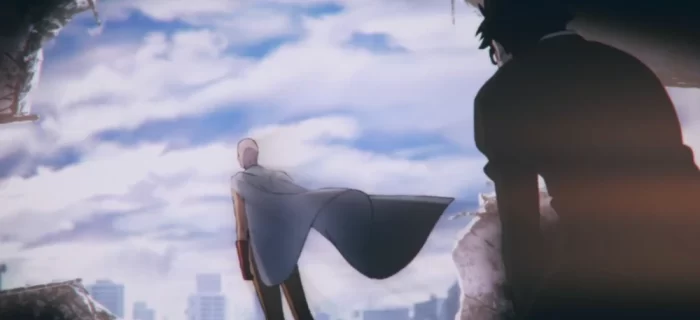
What do you think? Leave a comment.
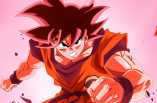




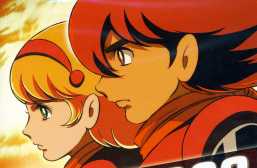
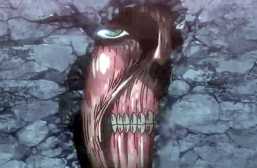
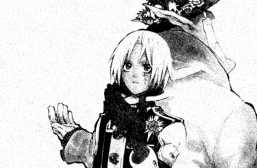

One punch man is such a great show, it really makes you think about how great it feels to overcome a difficult challenge.
I once heard a theory that Saitama is actually a hero monster. Everyone here likely knows about that crab man, the man who liked crab so much he became a crab monster, Saitama wanted to be a hero so much he became a monster that could protect everyone.
Saitama is the grim reaper of ego. Whether you’re an arrogant hero or villain, or you’re mumen and refuse to accept how useless you actually are, Saitama always puts you in your place. The more arrogant, delusional, vindictive or vengeful the character is, the more cathartic it is to watch their egotistical sense of self worth and idealism get shattered to pieces by the unwavering weight of reality that IS Saitama. It’s very reflective of reality too because radical ideals are crushed everyday by undeniable realities and for good reason.
Great article. I would urge people to watch One Punch Man as the main point explored in it – the role of suffering in one’s life, is pretty relevant nowadays, despite having numerous fictional elements.
As a growing up teenager, I immediately took a liking to Saitama the first time I watched it, probably because of his feeling that there’s something robbing him of all emotion in his life, which he ties to being too strong a hero. This emotional deprivation and the emptiness it leaves behind hit home and allowed me to feel some of the scenes on a deeper level. One thing that earned my great respect for Saitama was his ability to remain uninfluenced by people’s criticism, false accusation, and dismissive attitude. He is, in my opinion, one of the most if not the most unappreciated character by the public (in the anime), and this principle of doing good in the world without expecting praise or any kind of reward in return is something we should all learn to do.
I first seen this advertised on Netflix (UK) a year or so ago.
First thought was “hmm thats where the bald guy is from then” and thought that a series about a guy who can simply “One Punch” everything, would be abit dull, kind of like a series based around Game Shark or Action Replay etc.
But crickey was I wrong, i REALLY enjoyed this, Im just gutted Netflix took it off, and I cant seem to find reliable sources to watch it on.
May have to get it on bluray or something so I can binge it somemore.
My thoughts are that he actually does have a power but his power is not having physical limits.
In OPM every being is assigned a “limiter” by god but because of Saitama training causing him to constantly be at near death he had broken his limiter allowing if potential to grow infinitely meaning he has no limits in strength speed durability. so yes you are correct and now you know why you are correct.
In my opinion, Saitama is a great main character choice, he’s not like the other main characters in other popular anime shows, it’s because he’s not a show off.
if you can’t breathe in a room with saitama, it’s because he obliterates the air with his breath.
I love how amazing Saitama is despite him barely even remembering half the people he meets.
Just remember kids. Just do a physical amount of physical training each day, don’t use heat in the winter or an air conditioner in the summer. And then you’ll be the strongest in the Universe.
I’m one of those people who doesn’t like anime and my friend tried to get me to watch stuff like Darling in the franxx and konosuba which I didn’t like. I found this O.P.M on hulu myself and I actually liked it.
Saitama is actually a very human character, even with his little mundane concerns like the weekend sale/bargain day at supermarket, or even his character’s flair where his motivations are unaffected or not driven by public image/persona nor statuses as seen in established society… that even when nobody knows about him or his actual abilities, he just does what he does since he’s not fueled by external recognitions but instead because simply it’s what he wants to do and his personal quest for satisfaction by his own terms… there’s something very down-to-earth quality about this side of his character and somehow it resonates with me in such a refreshing way that it makes me appreciate even the little mundane concerns in life, and even some of the “meaningless” sort of feeling to it, in a way it kind of also makes me appreciate life as it is. So even though with his transcendent heroic descriptions, at the same time he is also very human to me, in the down-to-earth sense/aspect to it.
Saitama reminds me of kenpachi.
I love how Saitama immediately makes any conflict a non issue. If I wanted to see a buildup and narrative momentum and battle, I’ll go watch DBZ or something. I come to see Saitama absolutely shit on villains. I grow tired of backstories and feeling sympathetic. Sometimes I just want some KO eye candy
I love how Guts and Saitama are polar opposites.
Dont get too comfortable, be grateful for your failures and embrace your pain suffering, because without it, life has no meaning.
Great article! It’s so nice to see it live after revising it! Great job, and it’s fun to take an in-depth look at one of the major facets of Saitama’s character!
Saitama is my favorite hero.
It’s cool to see how the creator of this show and mob psycho is able to create 2 completely different shows but still have remnants of the similar overlying theme an OP main character who welcomes/appreciates the struggles of life.
ONE PUNCH MAN is deeper than Evengeleon. Fight Me.
Great piece. And everyone, please, don’t watch the dubbed version. It’s blasphemy and does not portray the character’s attitude correctly on key moments.
I often find it funny to think of Saitama’s blank expression of a hero compared to all might’s constant smiling and heroic presence. All might strives to be the symbol and uses his abundance of power as a comfort for those who don’t have power (even though he’s in a world where 80% of people have an ability most don’t feel empowered), I wonder why Saitama doesnt find something similar to do with his power. All might in his prime must have been similarly unchallenged by most villains but derived a purpose in helping others which is truly heroic, the easier it was to defeat villains the more people he could help.
What a piece of art… but the second season was a mistake.
I think OPM and the character represents, not hope itself, but the reason we hope. It is saying our problems might not be solvable with one punch if they can be solved at all, but our fear, doubt, or anxiety can.
He is a not so ordinary man, who wants to fit into an ordinary world.
Santana isn’t event a the main character in his own show.
He just wants to be a pro gamer and beat king
The best part of his power is he is so far beyond even very powerful characters that he sometimes doesn’t even know if someone sneak attacks him or at least barely notices.
My favorite hero is mumen rider in the show. I mean my favorite character is obviously saitama but as a hero I like mumen rider better.
Ive never been into anime but I’ve just started watching one punch man, first two episodes done. I like it but I don’t understand it. Where do the enemies come from and why? They just show up and get punched, that’s it. Am I missing something?
I think the saddest thing about this show is not Saitamas depression but lack of recognition. Throughout the entire show he is treated as a nuisance in society. People labelled him a criminal in some parts and a cheater. At heart, he just wanted to help humanity. In the end, I was really hoping that everyone would recognize Saitama for the true power he really possesses but he just walks away, he wasn’t even talked about by the other characters in the ending battle except for Genos even though he independently destroyed the ship.
Am I the only one who gets catharsis from watching saitama literally just fuking everything up. Best thing ever.
In the long run Saitama is just comical relief, in a little same sense that Deadpool. I mean yeah, Deadpool isn’t OP char, but they both have they comical gimmick.
Im amazed that saitama doesnt’ have any pupils or anything on his face,his whole head is as smooth as an egg…..
Saitama is in constant conflict with himself.
Imagine sitama became a monster. The universe would be gone. This would never happen cause it would just make everything more boring.
Coming back to watch this anime after reading the article. Thank you.
I remember when One Punch Man popped up and constant spews of: “I’m not interested in watching a show where the guy always wins with one punch…”
Saitama’s only weakness is his “Strength”.
One Punch Man is just poking fun at all the stereotypical anime that take themselves too seriously while one-upping them in quality.
Is Saitama really alienated or morally ambiguous? In regards to social isolation, by the end of the second season he befriends a slew of prominent characters in the franchise (genos, blizzard, king, and the two martial arts guys), and while his prowess prevents them from providing competition, they do not deny him companionship. He doesn’t view genos as a pupil, but certainly sees him as a friend and a colleague; enough so to entertain his desires for combat (albeit briefly) and shared living.
I would even go so far as to suggest that his moral righteousness is what prevents the alienation and moral decrepitude spoken of in this article. Saitama’s entire motivation for heroism draws from a suicidal attempt to protect a child, and all of his actions exemplify that behavioral inclination. He constantly makes personal sacrifices for the benefit of others (like with Mumen Rider to preserve the reputation of the hero association) and demonstrates overt care for others. This also downplays the dozens of times he quite literally saves millions and actively shirks recognition. I feel that it is through this goodness and modesty that he maintains his humanity. The narrative supports this stance quite strongly, as his internal monologues surrounding boredom and futility are only really present in the first few episodes, and his character shifts in priority as he gains more friends and personal investment in the world he lives in.
-Spoiler warning-
In his fight with galactic Garou, which was only recently covered in the manga, he doesn’t fret at all about his futility in spite of battling an infinitely powerful being. The fight centers around the contrast of strength of principles, which saitama has been able to foster in every action he takes in his humble daily life. He only cared about strength once he had acquired it, and it only served as a brief internal concern, whereas his desire to be “good” is ever present.
Saitama looks like Eren.
Could One Punch Man break Minecraft Bedrock?
OPM is my favorite show and hero!
Op Character with waifus at bay lol
Great piece of writing. Nice work 🙂
I do like this article. I think it is cool that Saitama is a reflection of people who have attained a certain goal but are not sure what to do next.